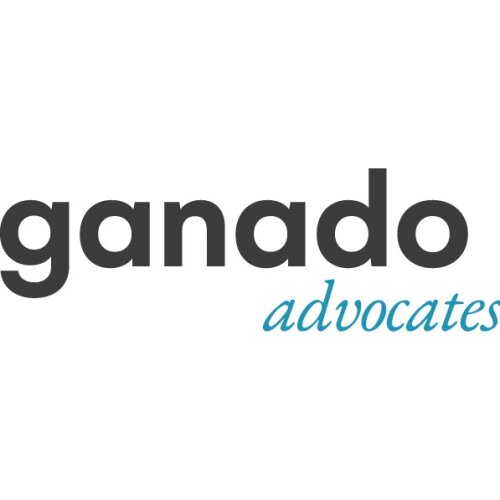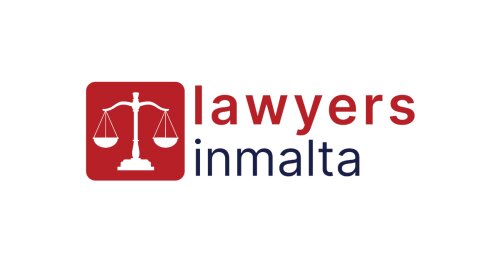Best Restructuring & Insolvency Lawyers in Malta
Share your needs with us, get contacted by law firms.
Free. Takes 2 min.
Or refine your search by selecting a city:
List of the best lawyers in Malta
About Restructuring & Insolvency Law in Malta
Restructuring and insolvency law in Malta is designed to provide an orderly framework for businesses and individuals facing financial distress. The aim is to facilitate the reorganization or winding up of insolvent entities while ensuring fair treatment of creditors and protection of employees and other stakeholders. Restructuring allows financially troubled companies to attempt recovery through arrangements and compromises with creditors, whereas insolvency proceedings can lead to the liquidation of assets and closure of the business. Malta's strategic position as an EU member state makes its legal framework robust and aligned with European directives, providing both local and foreign creditors and debtors with clear legislative routes for resolving financial difficulties.
Why You May Need a Lawyer
Individuals and businesses may need legal advice regarding restructuring and insolvency in several circumstances. Law firms can provide critical assistance if your business is experiencing cash flow problems, is unable to pay debts as they fall due, or if you are facing pressure from creditors. Legal help is crucial when exploring restructuring options such as company voluntary arrangements or when defending against bankruptcy petitions. A lawyer can also explain your rights and obligations, negotiate with creditors, prepare and review legal documents, and represent you in court if necessary. Additionally, if you are a creditor seeking to recover debts from a company or individual at risk of insolvency, legal expertise is vital to protecting your position and maximizing recovery.
Local Laws Overview
Malta's restructuring and insolvency laws are primarily governed by the Companies Act. The main procedures include company reconstructions, company recovery, voluntary and compulsory liquidation, and bankruptcy for individuals. Corporate restructuring is possible through arrangements with creditors, sanctioned by the court. The company recovery procedure offers temporary legal protection to distressed companies, allowing an administrator to try to restructure or sell assets. Insolvency for individuals is addressed under bankruptcy provisions. Malta also abides by EU regulations which can impact cross-border insolvencies and the recognition of foreign insolvency proceedings. The Maltese courts play a central role in overseeing these processes to ensure fairness and legal compliance.
Frequently Asked Questions
What is the difference between restructuring and insolvency?
Restructuring is the process of reorganizing a company’s financial and operational structure to overcome financial difficulties, often with the aim of avoiding insolvency. Insolvency, on the other hand, occurs when a person or company cannot pay its debts as they become due, potentially leading to liquidation or bankruptcy.
Who can start insolvency proceedings in Malta?
Insolvency proceedings can be initiated by the company itself, its directors, creditors, or other stakeholders who have a legal interest, such as shareholders. The court may then review and decide on the application.
What is the company recovery procedure?
This is a special legal process allowing a financially distressed company to be placed under the management of a court-appointed administrator. The goal is to rescue the company by restructuring its debts or business operations, rather than going straight to liquidation.
How long does an insolvency proceeding usually take in Malta?
The duration varies depending on the complexity of the case and the procedures involved. Some recovery plans can be wrapped up within months, while full liquidation can take years, especially for large or contentious estates.
Will restructuring protect a company from its creditors?
The company recovery procedure in Malta provides for a temporary moratorium, which can halt legal actions and enforcement by creditors while the administrator attempts to restore the company’s viability.
Can directors be held personally liable during insolvency?
Yes, directors can be held personally liable in cases of wrongful or fraudulent trading, or if they breach their legal duties in running the company before or during insolvency.
What role does the court play in insolvency and restructuring processes?
The court supervises all major stages of the process, including the appointment of administrators or liquidators, approval of creditor arrangements, and ruling on disputes and objections made by stakeholders.
What happens to employees during insolvency?
Employees have certain legal protections, and unpaid wages and employment claims usually receive preferential status in liquidation. However, redundancy or job loss may occur depending on the outcome of restructuring or liquidation.
Can foreign creditors participate in Maltese insolvency proceedings?
Yes, foreign creditors’ claims are recognized by Maltese law, and Malta follows EU regulations that facilitate cross-border insolvency cases and the recognition of foreign court decisions.
How can a lawyer help during restructuring or insolvency?
A lawyer provides valuable guidance on the available options, ensures compliance with legal procedures, helps to negotiate with creditors, drafts and reviews legal documents, and represents clients in court or negotiations to protect their interests.
Additional Resources
If you are seeking more information or support regarding restructuring and insolvency in Malta, these resources may be useful:
- The Malta Business Registry - responsible for company registration and corporate affairs
- The Malta Financial Services Authority - oversees corporate governance and financial regulations
- The Commercial Section of the Civil Court - handles insolvency and company recovery proceedings
- Chamber of Advocates Malta - professional body for lawyers
- Licensed insolvency practitioners and recognized professional bodies
Next Steps
If you believe you may be facing restructuring or insolvency issues, it is important to act promptly. Begin by gathering all relevant financial and legal documents relating to your business or personal circumstances. Consider seeking advice from an experienced lawyer who specializes in restructuring and insolvency law in Malta. Legal professionals can assess your situation, outline your options, and guide you through the necessary steps-whether that means entering into restructuring talks, filing for protection, or taking other action to safeguard your interests. Early intervention often leads to better outcomes, so do not delay in seeking help if you are experiencing financial distress or uncertainty.
Lawzana helps you find the best lawyers and law firms in Malta through a curated and pre-screened list of qualified legal professionals. Our platform offers rankings and detailed profiles of attorneys and law firms, allowing you to compare based on practice areas, including Restructuring & Insolvency, experience, and client feedback.
Each profile includes a description of the firm's areas of practice, client reviews, team members and partners, year of establishment, spoken languages, office locations, contact information, social media presence, and any published articles or resources. Most firms on our platform speak English and are experienced in both local and international legal matters.
Get a quote from top-rated law firms in Malta — quickly, securely, and without unnecessary hassle.
Disclaimer:
The information provided on this page is for general informational purposes only and does not constitute legal advice. While we strive to ensure the accuracy and relevance of the content, legal information may change over time, and interpretations of the law can vary. You should always consult with a qualified legal professional for advice specific to your situation.
We disclaim all liability for actions taken or not taken based on the content of this page. If you believe any information is incorrect or outdated, please contact us, and we will review and update it where appropriate.
Browse restructuring & insolvency law firms by city in Malta
Refine your search by selecting a city.
















